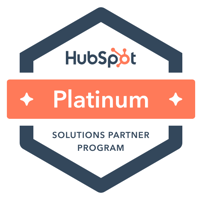What should you know about the sales automation process in 2022? The following information will discuss the answer to the following questions:
- What is sales automation?
- How does it work?
- What are the main stages involved in sales automation?
Let's dive in!

What Exactly is Sales Automation?
Sales automation can be defined as the use of software-based solutions to automate mundane, repetitive sales activities that don't necessarily require direct human interaction but are necessary to the overall sales process. For example, sales automation can help reps to save time on tasks. These can include updating contact information, managing calendars, logging customer interactions, as well as scoring leads.
A big part of the sales automation process is the CRM (customer relationship management) system. Your CRM can serve as a "single source of truth" for all customer data related to your sales pipeline. It can also allow your team to manage their interactions with prospects and leads in real-time, and be more proactive in reaching out to them.
Another great thing about sales automation solutions, like CRM platforms, is their ability to serve as the technical framework for your sales funnels. As you build out your sales funnel for a specific customer segment, you can use your sales automation software to propel prospects through that funnel and closer to a purchase decision with your company.
How Does the Sales Automation Process Work?
The truth is, there is no "cookie-cutter" answer to making sales automation work. Each company is unique and has its own set of needs, resources, as well as goals.
That being said, here are 5 key aspects of a typical sales automation process:
1. Automated Communications
This covers a wide range of sales activities. For instance, sales automation software can help your reps to develop email templates that are personalized to specific segments and then send them out accordingly. Appointment scheduling software can help your team to be more effective at reaching out to prospects. In fact, they may even offer those prospects the convenience of "self-scheduling" options.
2. Automated Activity Logging
An important part of staying up-to-date with customer data in your CRM is logging each interaction that takes place. Automated activity logging is a key feature that makes life easier for your team. Each interaction is recorded in real-time and becomes visible for each member of your team that interacts with the prospect in the future.
3. Automated Reminders
Sales reps have a lot on their plate, and it can be easy to let things slip through the cracks. Automated appointment reminders and task alerts can provide your team with key guidance as they focus on converting leads as well as closing sales.
4. Automated Lead Scoring
Sales automation software can leverage historical consumer data and current customer behaviors into a highly effective lead scoring model - one that will let your sales reps know whom to prioritize in their outreach.
5. Automated Research
Sales automation software can also play a huge role in research, such as by identifying sales opportunities from social media channels and other avenues across the Internet. And with such information stored in a centralized database, it's extremely convenient for members of your sales team to access and follow up on these opportunities in a timely manner.
What are the Main Stages of the Sales Automation Process?
In terms of what specific tasks and activities you should automate, you can usually use the stages of your sales funnel as a helpful guideline. For example, let's look at what you can do with the following 3 basic sales funnel stages:
Awareness
At this point in their customer's journey, your prospects likely don't know about your brand, or they're not very familiar with it. You can leverage automated solutions to generate more brand awareness around your company as well as pique the interest of your audience. Examples of automated sales activities in this stage would include:
- Research and prospecting
- Email marketing
- SMS text marketing
Evaluation
Once your prospect has become interested in your product or service, the next step is to help them evaluate how your solution stacks up to the competition, and what benefits they'll receive from doing business with you. Automated lead nurturing tasks also play a huge role in moving prospects from this stage to the next one. Examples of automated activities may include:
- Sending out segmented email newsletters
- Promoting articles and blog posts on your website (especially those that are relevant to the prospect's needs)
- Delivering reminders and alerts to your sales team to follow up on content downloads and email click-throughs

Decision
Finally, your prospect is ready to make a purchase decision. This is a crucial stage since you don't want your competition to "swoop in" at the last moment and steal away a lead you've taken great pains to nurture. Fortunately, there are several ways that sales automation can help in this regard, too. For example, you may decide to leverage automated tools that will:
- Generate quotes, and send over confidential information for the prospect to consider (product documentation, contracts, invoice details, etc.)
- Deliver free trial versions of your product to interested consumers for a limited time
- Track customer details, such as contact information, payments made, product versions bought, and so forth
- Automatically charge customers who've signed up for an automatic subscription
As you can tell, throughout each stage of the sales funnel, automated solutions can make your sales reps' lives much easier - and your customers much happier.
Final Thoughts
The details of sales automation can get a little complicated. However, the basic concept is simple: use the tools and technologies at hand to streamline the sales process as well as empower your team to focus on what they do best - nurture leads and close deals.
If you'd like to explore how sales automation can drive growth for your business, reach out to our sales and marketing experts at OverGo Studio today for a free consultation. We'd be happy to help!
Take advantage of our free Hubspot CRM Configuration to start modernizing your sales process. This is a limited-time offer where we will design a sales pipeline specifically for your business. Start generating more revenue and improve your close rates by building your first high-performing sales pipeline on HubSpot at no cost. Simply schedule a discovery session with our team of HubSpot experts.


